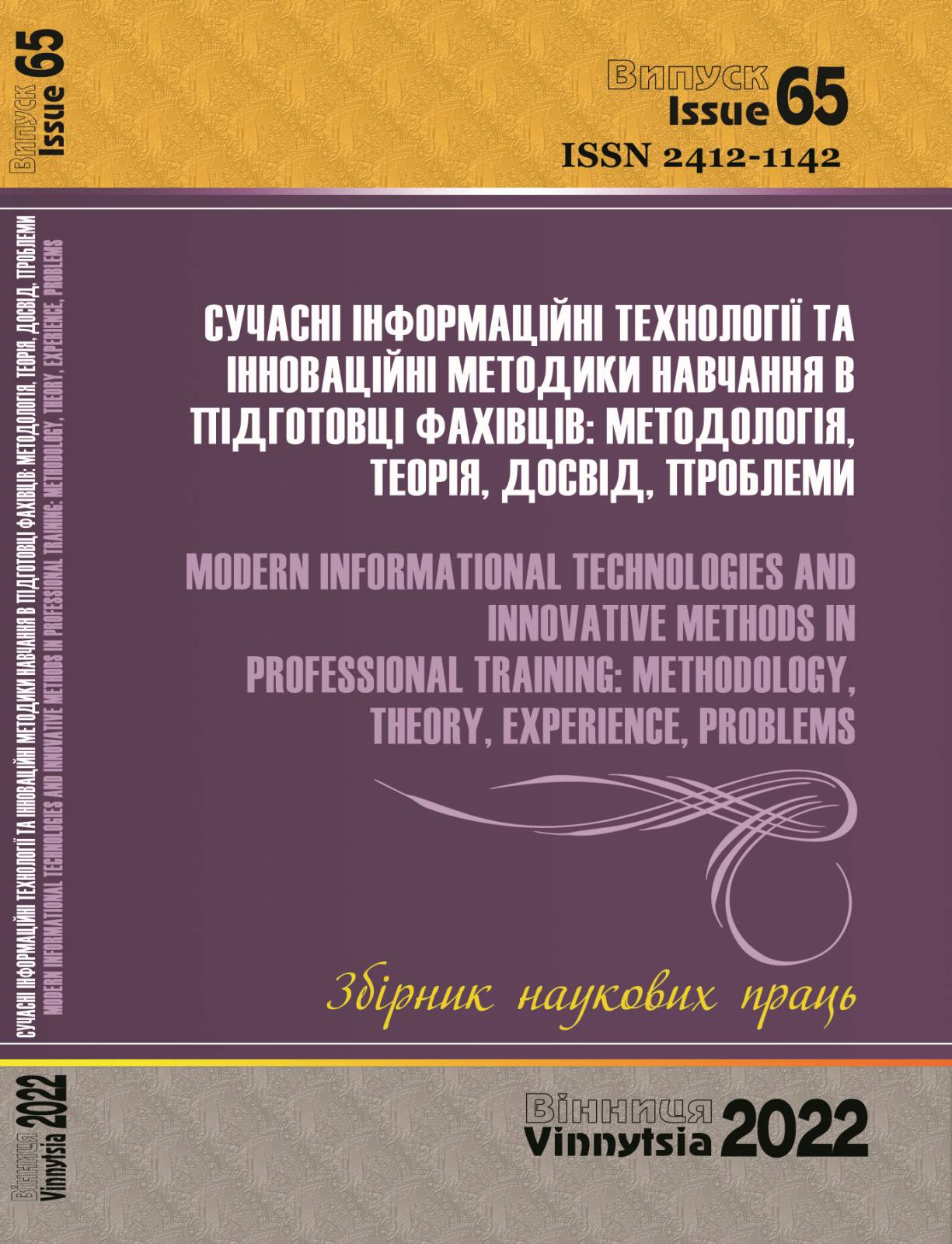FORMATION OF PROFESSIONAL COMPETENCE FUTURE LAWYER
DOI:
https://doi.org/10.31652/2412-1142-2022-65-174-183Keywords:
майбутній правознавець; професійна компетентність; змішане навчанняAbstract
The search for ways to improve the educational process in higher education in the rapidly
changing conditions of modern social development is a key issue for scientists in various fields of
knowledge. In order to ensure the effective functioning of the economic system and state institutions in
the process of professional training, it is necessary to form in the future specialists of the field of "Law"
the ability not only to use their competences to solve professional tasks, but also the ability to predict the
development and consequences of a certain social situation depending on the adoption or rejection of
normative acts and own legal actions. The article analyzes the approaches of domestic and foreign
scientists to the problem of forming the professional competence of a future specialist in the field of law.
The theoretical analysis of scientific publications on the research problem showed that there are a number
of thorough theoretical and practical studies on the content of professional competence. However, at the
same time, its structural components are sufficiently developed within the framework of the systemic
approach, but in each individual case, further research into their content is required. Taking into account
the analysis of scientific research on the peculiarities of the professional activity of specialists in the field
of law and the results of an expert survey, it is proposed to distinguish the cognitive-active, motivational,
reflective, axiological and informational components in the structure of their professional competence. It
is worth noting that the professional competence of future legal scholars has a complex structure with
non-linear interrelationships between components. We see the prospects for further research in the
definition of criteria, indicators and levels of formation of the professional competence of future
specialists in the field of "Law", in the development of the procedure for its diagnosis, as well as in the
improvement of the educational process by determining the optimal ratio of classroom and remote
components in the conditions of a mixed form of education in the process of developing professional
competence of future legal scholars and the development of appropriate educational and methodological
support.
Downloads
References
Epstein R. M,. Hundert E. M. Defining and Assessing Professional Competence. URL:
http://jama.jamanetwork.com/article.aspx?articleid=194554.
Kane M. T. The Assessment of Professional Competence. URL: http:// ehp.sagepub.com/content/15/2/163.short.
Яворська Н. В. Формування професійної компетентності майбутніх юристів у контексті стандартизації.
Вісник Університету імені Альфреда Нобеля. Серия «Педагогічні науки». 2017. No 2 (14). С. 223–228.
Івашкевич І. Психологічні чинники становлення професійної компетентності майбутніх юристів. Дис. ...
канд. психол. наук. Рівненський державний гуманітарний університет, Рівне. 2017. 228 с.
Черновський О. К. Професійна компетентність юриста. Право і суспільство. 2017. No 6. С. 35–40.
Мудрик А. Б. Психологічні особливості професійної компетентності державних службовців.
Психологічні основи ефективної професійної діяльності в системі державної служби: кол. моногр. / за
наук. ред. Л. М. Карамушки, Л. Я. Малімон. Луцьк: СПД Гадяк Ж. В., 2011. С. 150 – 181.
Радченко К. Педагогічні умови формування професійної компетентності майбутніх військових юристів у
процесі фахової підготовки. Дис. канд. пед. наук. Українська інженерно-педагогічна академія, Харків.
336 с.
Зошій І. В. Психолого-педагогічні умови формування професійної компетентності майбутніх юристів.
Дис. канд. психол. наук. Національний університет «Острозька академія», Острог. 2018. 289 c.
Кожем’яко Н. В. Особливості діяльності фахівця юридичного профілю. Наукові записки Тернопільського
національного педагогічного університету ім. Володимира Гнатюка. Сер.: Педагогіка. 2011. No 4.
С. 95-101.
Федоренко О. Зміст професійної компетентності юриста. Педагогічні інновації: ідеї, реалії, перспективи.
Вип. 1. С. 87–93.
Співаковський О. В., Щедролосьєв Д. Є. та ін. Управління ІТ вищих навчальних закладів: як
інформаційні технології допомагають зробити управління ефективним: метод. посібник. Херсон: Атлант,
356 с.
Професійна освіта: cловник / Уклад. С. У. Гончаренко та інші. За ред. Н. Г. Ничкало. К.: Вища школа,
С. 149.
Келли Дж. Теория личности (теория личных конструктов) .. СПб.: Речь, 2000. 249 с.
Atkinson D., Mc.Clelland D. The Projective expression of needs. Journal of Experimental Psychology. 1984.
No 33. Pp. 35–41.
Хекхаузен Х. Мотивация и деятельность. СПб.: Питер; М.: Смысл, 2003. 860 с.
Gollwitzer P. M. Action phases and mind-sets. social behavior. New York, Guilford Press. 1990. Vol. 2.
Pp. 53–92.
Webb T. L., Sheeran P. Does changing behavioral intentions engender behavior change? A meta-analysis of the
experimental evidence. Psychological Bulletin. 2006. 132(2), Pp. 249-268. doi: 10.1037/0033-2909.132.2.249.
Парасюк В. М. Імперативність моралі у професійній діяльності слідчого: філософсько-правовий вимір.
Автореф. дис. ... канд. юрид. наук. Львівський державний університет внутрішніх справ, Львів. 2008.15 с.
Гусарєв С. Д., Тихомиров О. Д. Юридична деонтологія. К.: ВІРА-Р, 1999. 506 с.
Баловсяк Н. Інформаційна компетентність фахівця. Педагогіка і психологія професійної освіти. 2004.
No 5. С. 21–28.
Downloads
Published
Issue
Section
License
Copyright (c) 2022 Віталіна Пугач

This work is licensed under a Creative Commons Attribution 4.0 International License.

